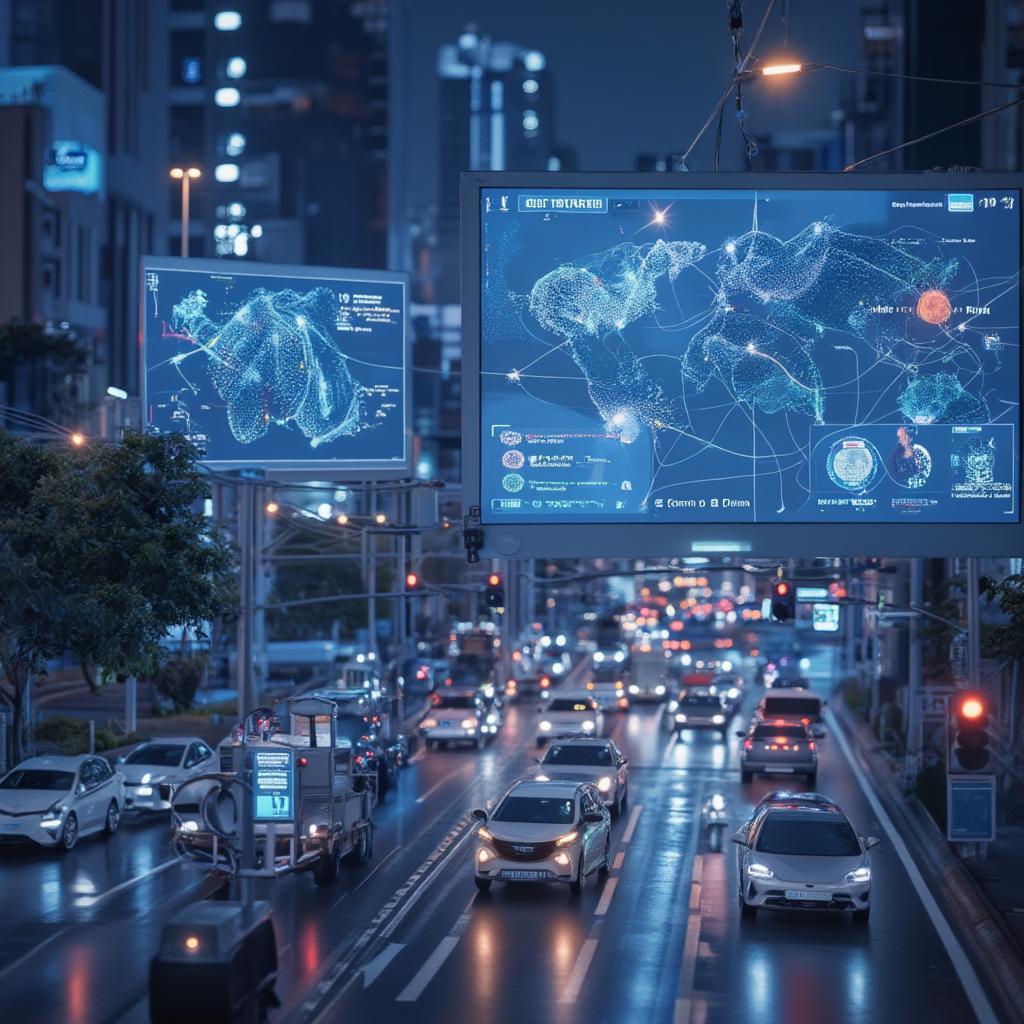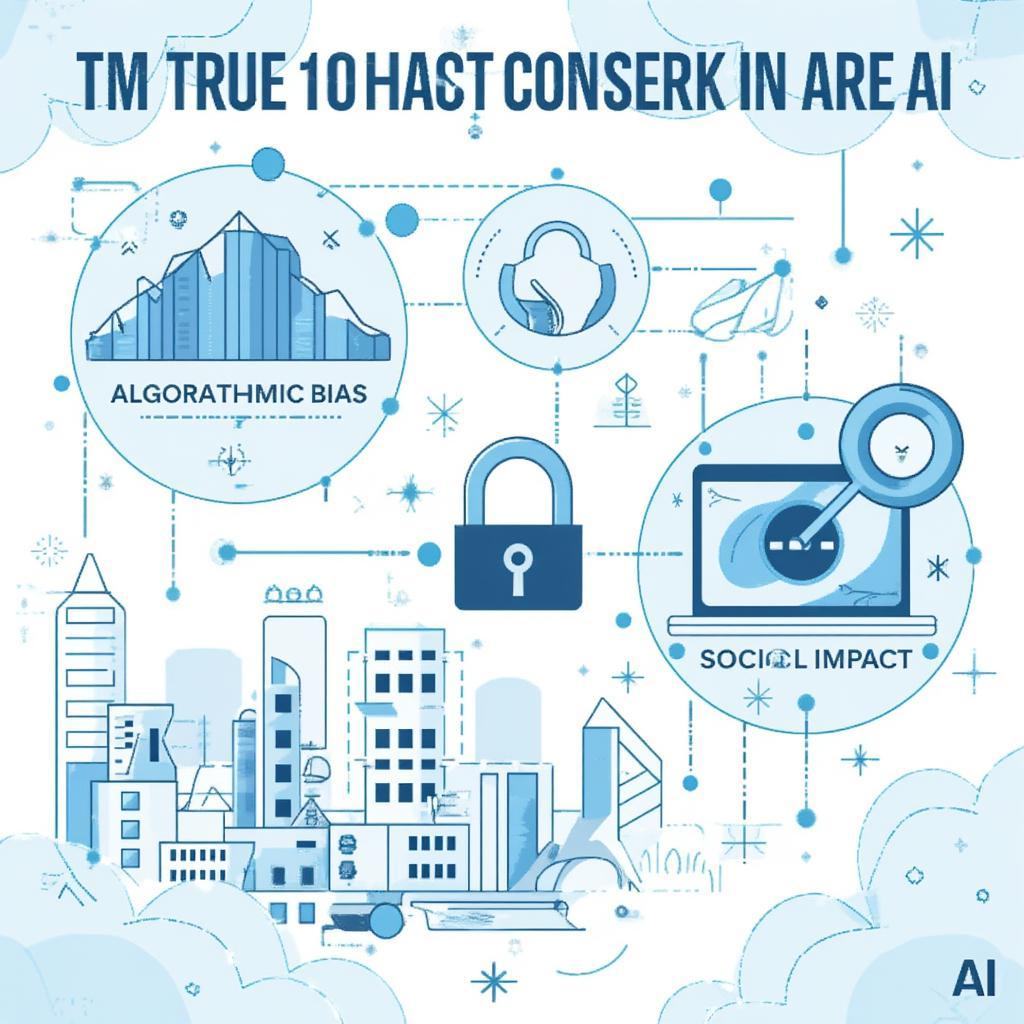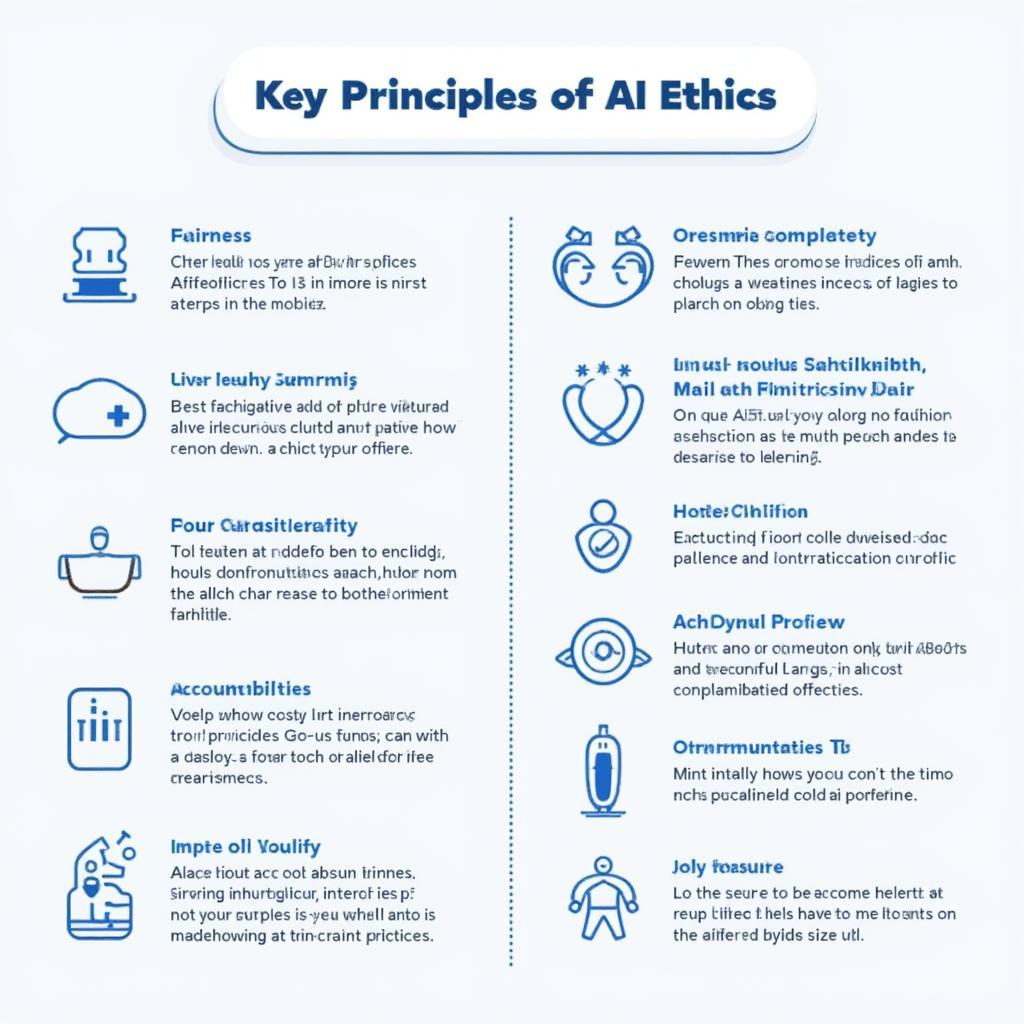AI in Smart Cities: Shaping the Future of Urban Living

AI is rapidly transforming urban landscapes, playing a crucial role in the development of smart cities. By leveraging the power of artificial intelligence, cities can optimize resources, improve infrastructure, enhance public safety, and create more sustainable and livable environments for their citizens. This integration of Ai In Smart Cities is revolutionizing urban planning and management, offering unprecedented opportunities to address complex challenges and improve the quality of life for urban populations. From traffic management to waste disposal, AI is being implemented across various sectors, driving innovation and efficiency in the urban ecosystem.
How AI is Revolutionizing Urban Infrastructure
AI is being deployed to optimize various aspects of urban infrastructure, leading to significant improvements in efficiency and sustainability. For instance, AI-powered traffic management systems can analyze real-time traffic data to optimize traffic flow, reduce congestion, and minimize travel times. This not only saves time for commuters but also reduces fuel consumption and emissions, contributing to a greener environment. In addition, AI can be used to monitor the structural health of bridges, buildings, and other critical infrastructure, enabling predictive maintenance and preventing potential disasters. This proactive approach to infrastructure management can save cities significant costs in the long run and ensure the safety of their citizens. Similar to lora ai, AI can be used to improve communication infrastructure by optimizing network performance and ensuring reliable connectivity.

Enhancing Public Safety and Security with AI
AI is playing a vital role in enhancing public safety and security in smart cities. AI-powered surveillance systems can analyze video feeds from cameras to detect suspicious activities, identify potential threats, and alert law enforcement agencies in real time. This proactive approach to crime prevention can significantly improve the safety and security of urban environments. Furthermore, AI can be used to predict crime hotspots, enabling law enforcement to deploy resources more effectively and prevent crimes before they occur. AI algorithms can analyze historical crime data, demographic information, and other relevant factors to identify areas with a high probability of criminal activity.
What are the ethical implications of using AI in surveillance? This is a crucial question that needs careful consideration as cities deploy AI-powered surveillance systems. Striking a balance between public safety and individual privacy is essential to ensure the responsible use of this technology.
AI-Driven Sustainability in Smart Cities
AI is instrumental in promoting sustainable practices in smart cities. For example, AI can optimize energy consumption in buildings by analyzing occupancy patterns, weather conditions, and energy prices to adjust heating, cooling, and lighting systems automatically. This can lead to significant reductions in energy waste and greenhouse gas emissions. As discussed in artificial intelligence hindi, AI can be utilized in various sectors for efficient resource management. AI can also be used to optimize waste management systems by analyzing waste generation patterns and optimizing collection routes, reducing landfill waste and promoting recycling. AI-powered sensors can monitor fill levels in garbage bins, enabling efficient and timely waste collection.
The Ethical Considerations of AI in Smart Cities
The increasing use of AI in smart cities raises important ethical considerations that must be addressed to ensure responsible development and deployment. Data privacy is a major concern, as AI systems often rely on vast amounts of personal data to function effectively. Safeguarding this data and ensuring its responsible use is crucial to maintain public trust. Algorithmic bias is another critical issue, as AI algorithms can perpetuate and amplify existing societal biases if not carefully designed and trained. Addressing these biases and ensuring fairness and equity in AI systems is essential to prevent discrimination and ensure equal opportunities for all citizens.
Dr. Anya Sharma, a leading ethicist in AI and urban development, emphasizes the importance of transparency in AI systems: “Citizens have a right to understand how AI systems are making decisions that affect their lives. Transparency is crucial to build trust and ensure accountability.”
The Future of AI in Urban Environments
The future of AI in smart cities is bright, with continued advancements promising even greater benefits for urban populations. AI-powered personalized services, such as customized transportation recommendations and personalized healthcare, are on the horizon. Imagine a city where AI anticipates your needs and provides tailored solutions to improve your daily life. This vision of a truly smart city is becoming increasingly realistic as AI technology continues to evolve. More insights into future tech trends can be found on restaurant technology news.
How will AI impact employment in smart cities? While AI may automate certain jobs, it will also create new opportunities in areas such as AI development, data science, and AI ethics. Preparing the workforce for these changes is crucial to ensure a smooth transition to an AI-powered future.
Conclusion
AI is playing a transformative role in the development of smart cities, offering innovative solutions to complex urban challenges. From optimizing infrastructure and enhancing public safety to promoting sustainability and improving the quality of life, the benefits of AI in smart cities are undeniable. However, it is crucial to address the ethical considerations associated with AI development and deployment to ensure responsible and equitable outcomes. By prioritizing transparency, fairness, and accountability, we can harness the full potential of AI to create truly smart and sustainable cities that benefit all citizens. As highlighted in hi tech innovation news dualmedia and technology news 2022, AI is driving significant advancements across various sectors, and its role in shaping the future of urban living will only continue to grow. AI in smart cities offers a glimpse into a future where technology and human ingenuity work together to create a more efficient, sustainable, and livable world for all.




